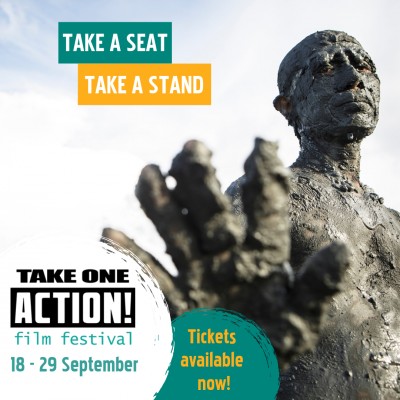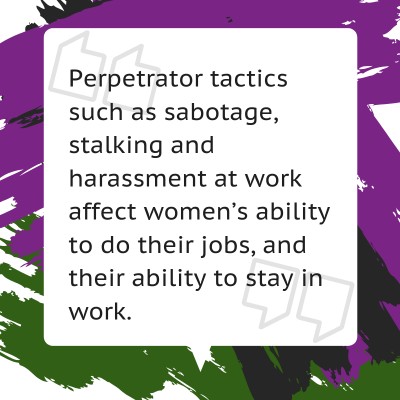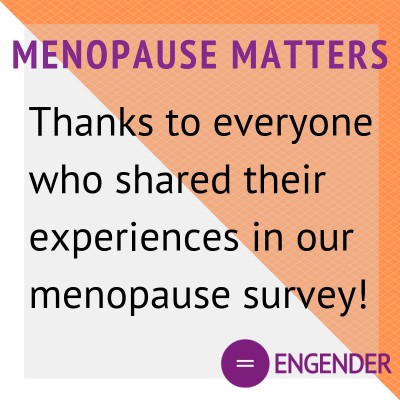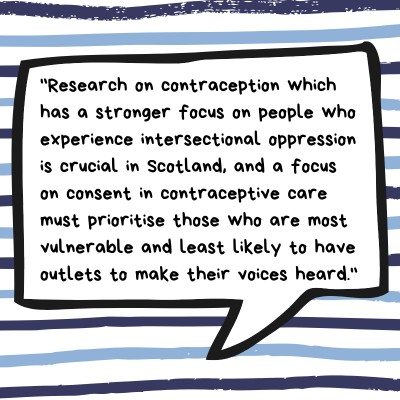Engender blog
All of Engender’s latest news. Reports, reviews, books, articles, and information from across Scotland’s women’s sector.
We would love to hear from other feminists around Scotland. Check out our guidelines for more information on how you can blog for us.
Feminism on Film: Engender joins with Take One Action Film Festival
 Films can be an amazing way to explore new ideas, understand complex issues, and celebrate change. And documentary film is a particularly good medium for discussion, as anyone who's overheard conversations about Fyre Festival, R Kelly or Apollo 11 this year will know.
Films can be an amazing way to explore new ideas, understand complex issues, and celebrate change. And documentary film is a particularly good medium for discussion, as anyone who's overheard conversations about Fyre Festival, R Kelly or Apollo 11 this year will know.
Guest Post: Equally Safe at Work
Women’s labour market participation experts, Close the Gap, are running an exciting employer accreditation programme called Equally Safe at Work. We asked Programme Officer Kelsey Smith to give us an update on the project so far.

Violence against women (VAW) occurs at epidemic levels. It affects all aspects of women’s lives and the workplace is no exception.
Over 70% of women reported having experienced or witnessed sexual harassment in the workplace in Scotland. However, the vast majority (80%) of women who experience sexual harassment in the workplace will never report it due to fear of being blamed, not being believed or losing their job. Other forms of VAW, such as rape and sexual assault, can significantly impact on women's ability to hold down a job, as a result of needing to take extended periods off because of the emotional and physical impact. Victim-survivors often experience trauma which can make it increasing difficult to be in work situations which involve groups of men or being alone with men.
Menopause Matters: Ending the stigma

Last week, we said goodbye to our intern Elena Rodriguez, who has been working with Engender to conduct research looking at women’s experiences of the menopause in Scotland as part of her studies at the University of Edinburgh. Elena has been collating the 371 responses we received to our Menopause Matters survey in June, and here she writes to thank all those who took part in survey and explains what the results have revealed so far.
Dear Participants,
Thank you so much for engaging with the survey and sharing it so widely. Today we have 371 different experiences from all over Scotland, and your stories, views and suggestions of what should be done to ending the stigma around the menopause are precious.
We know it is a tough topic to be open about, and that many of you have had painful experiences with health professionals, managers and even family and friends. As many of you told us, it can be a confusing, tiring, frustrating and embarrassing process. We all need to understand it, not just women. We all need to learn about it at a younger age. We all need to be capable of discussing it without minimising it or taking it as a joke. We all need to involve and recognise the people that are struggling with it because many of them are doing so or have done so in silence.
Guest Post: Exploring contraception as a feminist issue

As discussions around schemes which offer women support on the condition they utilise long-acting reversible contraceptives (LARC) continue, we've hosted a series of blogs by Elspeth Wilson discussing her research into how LARC has historically been - and continues to be - used to control the fertility of marginalised people. Read Elspeth's previous blogs here.
In her final blog, Elspeth explores adequate and accessible contraceptive care as a feminist issue.
The Pause programme highlights that accessible contraception is only one part of the fight for adequate contraceptive care. Conversations on contraception frequently focus on access and whether and how people can get the kind of contraception they want to use. Obviously, this an important concern but it is only one side of the conversation. I hope that in my discussion of consent and information in the other blogs in this series I have been able to show that the question of who gets offered what contraception and why must also be central to feminist discussions of contraceptive care. If we are to approach contraception as an intersectional feminist issue the question of whose fertility is (de)valued and whose is seen as something to be controlled is imperative.
Stay up to date with Engender's work in Europe
Engender sits on the United Kingdom Joint Committee on Women, which represents the UK at the European Women's Lobby. In June our director Emma Ritch was in Brussels for the European Women's Lobby General Assembly and here, she talks about the importance of our work with our feminist sisters across Europe.
We know that Brexit is on the minds of women in Scotland at the moment. The Conservative leadership campaign that will select the next UK Prime Minister has brought a lot of fears to the surface about immigration, women’s rights, care, and the economy.
Brexit was also on the agenda of the European Women’s Lobby general assembly, which I attended along with colleagues from sister organisations in Wales, Northern Ireland, and England. Together Engender, Northern Ireland Women’s European Platform (NIWEP), Women’s Equality Network Wales, and England’s National Alliance of Women’s Organisations makes up the UK Joint Committee on Women. We are the UK representation to the Lobby, which is the largest umbrella body of feminist organisations in Europe.
Downloads
 Engender Briefing: Pension Credit Entitlement Changes
From 15 May 2019, new changes will be introduced which will require couples where one partner has reached state pension age and one has not (‘mixed age couples’) to claim universal credit (UC) instead of Pension Credit.
Engender Briefing: Pension Credit Entitlement Changes
From 15 May 2019, new changes will be introduced which will require couples where one partner has reached state pension age and one has not (‘mixed age couples’) to claim universal credit (UC) instead of Pension Credit.
 Engender Parliamentary Briefing: Condemnation of Misogyny, Racism, Harassment and Sexism
Engender welcomes this Scottish Parliament Debate on Condemnation of Misogyny, Racism, Harassment and Sexism and the opportunity to raise awareness of the ways in which women in Scotland’s inequality contributes to gender-based violence.
Engender Parliamentary Briefing: Condemnation of Misogyny, Racism, Harassment and Sexism
Engender welcomes this Scottish Parliament Debate on Condemnation of Misogyny, Racism, Harassment and Sexism and the opportunity to raise awareness of the ways in which women in Scotland’s inequality contributes to gender-based violence.
 Gender Matters in Social Security: Individual Payments of Universal Credit
A paper calling on the Scottish Government to automatically split payments of Universal Credit between couples, once this power is devolved to the Scottish Parliament.
Gender Matters in Social Security: Individual Payments of Universal Credit
A paper calling on the Scottish Government to automatically split payments of Universal Credit between couples, once this power is devolved to the Scottish Parliament.
 Gender Matters Manifesto: Twenty for 2016
This manifesto sets out measures that, with political will, can be taken over the next parliamentary term in pursuit of these goals.
Gender Matters Manifesto: Twenty for 2016
This manifesto sets out measures that, with political will, can be taken over the next parliamentary term in pursuit of these goals.
 Scottish NGO Briefing for UN Special Rapporteur on Violence Against Women
Joint briefing paper for the UN Rapporteur on Violence Against Women.
Scottish NGO Briefing for UN Special Rapporteur on Violence Against Women
Joint briefing paper for the UN Rapporteur on Violence Against Women.

Newsletter
Sign up to receive our newsletter here:
Sign up to our mailing list
Receive key feminist updates direct to your inbox: